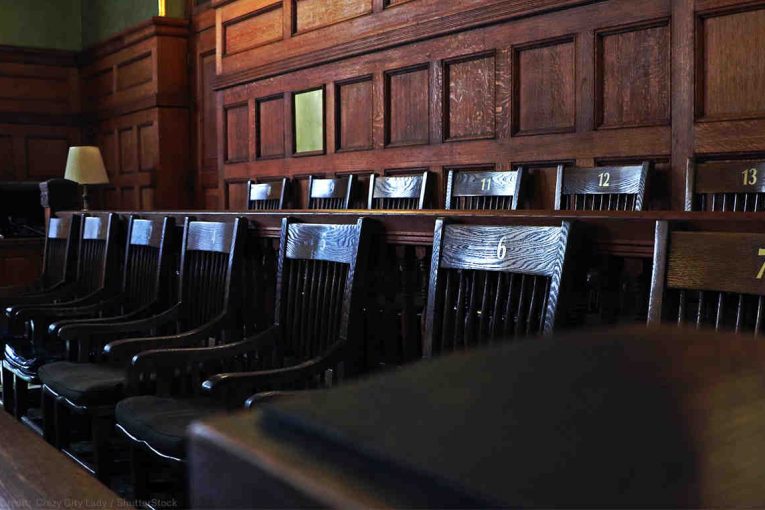

By David M. Greenwald
Executive Editor
San Jose, CA – A defense attorney trying a high profile murder case found himself in hot water with a new law designed to guard against racially discriminatory jury peremptory challenges.
“Application of CCP 231.7 in this case is disempowering my Latino client to make decisions about the jury that he believes is best suited for this case and, therefore, places a juror’s right to serve on a jury above my client’s constitutional rights to a fair trial,” Attorney Curtis Briggs wrote in a declaration that was heard on Thursday in Santa Clara County Court.
Ultimately, on Thursday, the judge threw out the empaneled jury as Briggs, falling on his own sword, claimed ineffective assistance of counsel and the judge agreed to throw out the jury and start over with jury selection.
“This law places a juror’s right to serve on a jury above the right of the accused to provide input on who sits on the jury,” Briggs told the Vanguard.
He noted, “Because of this law, the prosecutor argued that my young Latino client was discriminating against a young Latino prospective juror, when that was never the case.”
In 2020, then-Assemblymember Shirley Weber (now Secretary of State) sponsored AB 3070, the Anti-Discrimination Jury Selection Act that was signed into law by Governor Gavin Newsom.
“Citizens are too often excluded from serving on juries because of their race, ethnicity, gender, sexual orientation, or other legally-protected characteristics,” the reasoning went.
In short, the law improves on the Batson/Wheeler procedure which “was designed to root out intentional acts of discrimination by lawyers when they exercise peremptory challenges to eliminate prospective jurors.”
AB 3070 broadened “jury selection laws to address both conscious and unconscious discrimination (and) will ensure that parties are able to fully exercise their rights under the state and federal Constitutions and strengthen the public’s trust in California courts.”
Ricardo Diaz and his brother Alex Toledo, both Latinos, are on trial in Santa Clara County for murder.
This week, Judge Artur Bocanegra ruled that Briggs, along with co-counsel, “engaged in discrimination against a Latino juror by asking he be excused from jury service. A violation of the newly enacted CCP 231.7.”
The prosecutor in the case is Deputy DA Sulaiman Tokhi (formerly of Yolo County).
Briggs argued, “The court’s finding is absurd and I emphatically deny any allegation of such conduct.”
At issue, a decision to remove two Latino prospective jurors along with two white jurors and an Asian juror.
“The court’s finding that there was objective discrimination is contrary to everything presented,” Briggs writes. “Peremptories are discretionary as long as they are not in violation of Batson/Wheeler and/or CCP 231.7 and involve judgment calls about a juror’s ability to hear evidence and deliberate.”
Code of Civil Procedure § 231.7 went into law and this was the first trial that Judge Bocanegra conducted under the framework of this new law.
According to Briggs, “During off-the-record discussions on at least two occasions, the Honorable Bocanegra stated that CCP 231.7 was written poorly and, specifically, that he believes that peremptories are problematic and ‘should be eliminated.’ This demonstrated to me that he did not understand the significance of peremptory challenges to defense.”
On March 16, Briggs exercised a peremptory challenge against one prospective jury—a challenge that was joined by co-counsel, “although they had stated different reasons.”
Tokhi brought a CCP § 231.7 challenge against all defense counsel.
According to Briggs, he brought the challenge for three primary reasons: “1) medical training, 2) medical knowledge, and 3) experience in emergency services of animals.”
Briggs in his declaration wrote, “After finding a violation of CCP 231.7 the Honorable Bocanegra appeared confused and requested a side bar.”
When all counsel attended the side bar, Judge Bocanegra appeared exasperated exhausted and commented that “trials are a lot of work. Even if I don’t retire, this is my last trial.”
Briggs argued, “My impression from that statement was that this trial is so intellectually or physically taxing to him that he did not want to conduct another one. He explained he did not know how to proceed with peremptories and whose turn it was.”
Writes Briggs, “I shared in this confusion due to the new law, however, what was noteworthy to me was that Judge Bocanegra asked only Mr. Tokhi, the prosecutor, what the procedure should be. The judge is almost entirely deferring to Mr. Tokhi on the administration of the jury selection.”
Briggs argued that the judge’s “misunderstanding and misapplication of CCP 231.7” had created a conflict of interest between himself and his client.
“My client has asked me to strike a juror that I believe is a good fit for service on this case. However, I usually defer to my client on these issues. The conflict arises because the juror has been the subject of a successful CCP 231.7 challenge. CCP 231.7 involves professional consequences to me as a Black Lives Matter attorney and as a civil rights attorney. Additionally, the court’s (irresponsible and erroneous) ruling here can be used against me in further jury selections pursuant to CCP 231.7 which is alarming given the erroneous application by the court here,” Briggs writes.
Ultimately Briggs fell on his sword and claimed ineffective assistance of counsel, and was granted a new jury selection process by Judge Bocanegra.
In a statement to the Vanguard, Curtis Briggs said, “This law has the best intentions, but I foresee shrewd prosecutors and judges will apply it in a way that hurts defendants of color more than ever.”

